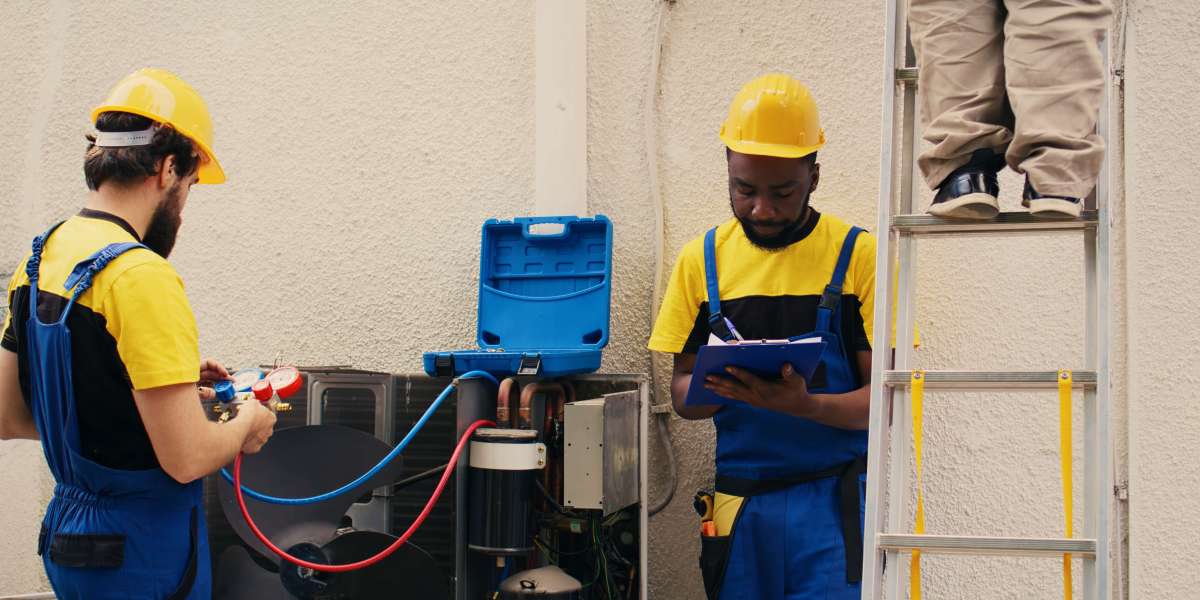Understanding when to replace your AC is crucial for maintaining a comfortable and energy-efficient home environment. While routine maintenance can extend the life of your system, there are certain warning signs you should never ignore. Addressing these issues promptly can prevent more severe problems and save you from costly repairs or the discomfort of a broken AC during a heatwave.
One of the first signs that your air conditioner may need replacement is an increase in your energy bills. As AC units age, they become less efficient, requiring more energy to cool your home. If you've noticed a significant spike in your electricity costs without any changes in usage, your air conditioner might be the culprit.
Increased energy consumption can strain your budget, especially during the peak of summer when AC usage is at its highest. An older unit that runs inefficiently will often work harder to achieve the desired temperature, leading to higher utility bills. Upgrading to a more efficient model can significantly reduce these costs, offering long-term savings that offset the initial investment.
Older AC units are more prone to breakdowns and often require frequent repairs. If you find yourself calling a technician regularly, it's a good indication that your air conditioner is nearing the end of its lifespan. Investing in a new unit could be more cost-effective than continuously paying for repairs.
Frequent repairs not only add up financially but can also lead to frustration and inconvenience. Each repair might fix a symptom but not the underlying problem, leading to a cycle of ongoing issues. A new system can provide peace of mind with a warranty and the assurance of reliable operation, reducing the risk of unexpected failures.
An air conditioner that can't maintain a consistent temperature throughout your home is another sign of trouble. If some rooms are too cold while others remain warm, your AC system might be struggling to distribute air evenly. This inconsistency can be due to various issues, such as duct problems or a failing compressor, both of which may indicate it's time for a replacement.
Inconsistent cooling can also be uncomfortable and frustrating, as certain areas of your home become unusable during extreme temperatures. The root cause might be an outdated system that lacks the capability to regulate airflow effectively. Modern AC units are designed to provide even cooling, enhancing overall comfort and ensuring every room remains at a desirable temperature.
Unusual sounds coming from your AC unit, such as grinding, squealing, or banging, are signs that something is wrong. These noises often indicate mechanical issues that could lead to a complete breakdown. While some problems can be fixed, persistent or severe noises may mean that a new air conditioner is necessary.
Ignoring these noises can lead to more severe damage over time, potentially resulting in a complete system failure. Mechanical components like fans or motors may be wearing out, and addressing these early can prevent further damage. A new unit will run quieter and more efficiently, eliminating the disturbances and providing a more peaceful environment.
The age of your air conditioner is one of the most significant factors in determining whether it needs replacement. Most AC units have a lifespan of about 10 to 15 years. If your system is approaching or surpassing this age range, it's time to start considering a new unit, even if it's still functioning relatively well. Newer models are more energy-efficient and can save you money in the long run.
An aging AC unit may not incorporate the latest technological advancements that enhance performance and efficiency. As systems age, they also become more prone to breakdowns, leaving you vulnerable during peak cooling seasons. Investing in a new unit can provide improved comfort, lower energy bills, and a reduced carbon footprint.
Your air conditioner plays a crucial role in maintaining indoor air quality. If you notice an increase in dust or humidity levels in your home, your AC unit might not be working properly. Aging systems can struggle to filter air effectively, leading to poor air quality and potential health issues.
Poor air quality can exacerbate allergies and respiratory conditions, affecting the well-being of your household. A newer AC unit with advanced filtration options can significantly improve air quality by effectively removing pollutants and controlling humidity levels. This investment not only enhances comfort but also promotes a healthier living environment.
Refrigerant leaks are a common issue in older air conditioning systems. If your AC is leaking refrigerant, it's not only harmful to the environment but also affects the unit's efficiency. Repairing leaks can be expensive, especially if your system uses outdated refrigerants like R-22, which is being phased out. In such cases, replacing the unit might be the best option.
Addressing refrigerant leaks promptly is crucial, as they can lead to further damage and increased operating costs. Modern systems use environmentally friendly refrigerants that comply with current regulations, providing peace of mind and enhanced performance. Transitioning to a new unit ensures compliance and reduces the risk of future leaks.
While air conditioners are designed to cool and dehumidify your home, an aging system may struggle to remove moisture effectively. If your home feels unusually humid, it could be a sign that your AC is no longer performing efficiently. Excess humidity can lead to mold growth and other issues, so addressing this problem promptly is crucial.
High humidity levels can cause discomfort and potential damage to your home's interior, including warped wood and peeling paint. A new air conditioning system can better manage humidity levels, maintaining a comfortable environment and protecting your home. The investment in a new system not only improves comfort but also safeguards your property from moisture-related damage.
If your air conditioner is turning on and off more frequently than usual, this is known as short cycling. It can be caused by various factors, including thermostat problems, electrical issues, or an oversized AC unit. Short cycling increases wear and tear on the system, reduces energy efficiency, and can lead to premature failure. If you're experiencing this issue, seeking air conditioner repair in Northeast Philadelphia from a qualified HVAC professional is the best way to diagnose the problem and determine whether repair or replacement is necessary.
Short cycling can lead to increased energy consumption and unnecessary stress on your system, ultimately shortening its lifespan. It's essential to address this issue promptly to avoid more costly repairs or replacements. A new unit, properly sized and installed, will operate efficiently and consistently, reducing the likelihood of short cycling and extending the life of your system.
Uneven airflow from your vents can indicate issues with your air conditioning system. Blocked or leaky ducts, a failing blower motor, or an aging compressor can all contribute to this problem. If adjusting vents or cleaning ducts doesn't solve the issue, it may be time to consider a new AC unit.
Uneven airflow can lead to discomfort and inefficiencies in cooling your home. It may also indicate underlying issues with the system's components that could worsen over time. A new air conditioning system can resolve these issues, providing consistent and efficient cooling throughout your home, ensuring every area is comfortable and inviting.
When faced with a significant repair bill, it's essential to weigh the cost of repairs against the price of a new system. If repair costs exceed 50% of the value of a new unit, it's usually more economical to replace the system. A new air conditioner will be more reliable and energy-efficient, providing better long-term savings.
High repair costs can add up quickly, making replacement a more viable option. Investing in a new system can eliminate the uncertainty of future breakdowns and the financial burden of ongoing repairs. A modern AC unit offers improved efficiency, reliability, and a warranty, ensuring peace of mind and long-term savings.
Recognizing the signs that your air conditioner needs replacement can save you money and ensure your home remains comfortable throughout the warm months. If you're experiencing any of the issues mentioned above, it's a good idea to consult with an HVAC professional. They can assess your system and recommend the best course of action. Investing in a new air conditioner not only improves your home's comfort but also increases energy efficiency, leading to long-term savings.
By staying vigilant and addressing problems early, you can prevent unexpected breakdowns and enjoy a cool, comfortable home all summer long. A proactive approach to maintaining and replacing your AC system ensures that you maximize comfort and efficiency while minimizing costs and disruptions.
danny djs
1 ブログ 投稿



